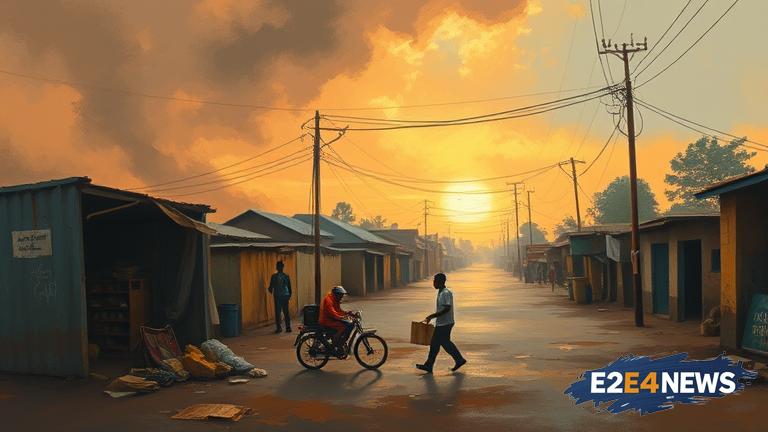The government of Zimbabwe has been making headlines in recent weeks with its efforts to crack down on the informal sector, a move that has been met with both praise and criticism from various stakeholders. On one hand, proponents of the move argue that it is a necessary step towards formalizing the economy and increasing tax revenues, which can be used to fund public services and infrastructure development. They point out that the informal sector, which is estimated to account for over 60% of the country’s economic activity, has been operating outside of the law for too long, and that it is high time that it is brought into the formal fold. On the other hand, critics of the move argue that it is an attack on the livelihoods of vulnerable citizens, who have been forced to eke out a living in the informal sector due to a lack of opportunities in the formal economy. They point out that the government’s efforts to regulate the informal sector will only serve to drive it further underground, leading to increased poverty and inequality. The government’s crackdown on the informal sector has also been criticized for being heavy-handed, with reports of police and municipal authorities using excessive force to confiscate goods and arrest vendors. Despite these criticisms, the government remains committed to its efforts to regulate the informal sector, and has announced plans to establish a new regulatory framework that will govern the activities of informal traders. The framework, which is expected to come into effect in the coming months, will require informal traders to register their businesses and obtain licenses, which will enable them to operate legally. However, many informal traders are skeptical about the government’s intentions, and fear that the new regulations will only serve to increase their costs and reduce their competitiveness. The debate over the government’s efforts to regulate the informal sector has also highlighted the need for a more nuanced approach to economic development, one that takes into account the complexities and challenges of the informal sector. Rather than simply trying to formalize the informal sector, the government should be working to create an environment that is conducive to entrepreneurship and job creation, and that provides support and resources to informal traders. This could include initiatives such as training and capacity-building programs, access to finance and markets, and social protection schemes. By taking a more holistic approach to economic development, the government can help to reduce poverty and inequality, and create opportunities for economic growth and development. The government’s efforts to regulate the informal sector have also sparked concerns about the impact on the country’s economy, which is already struggling to recover from a decade of stagnation. The informal sector is estimated to account for over 60% of the country’s economic activity, and any efforts to regulate it could have significant implications for the economy as a whole. Furthermore, the government’s crackdown on the informal sector has also raised concerns about the human rights of informal traders, who are often forced to operate in precarious and vulnerable conditions. The use of excessive force by police and municipal authorities has been particularly criticized, and has led to calls for greater accountability and transparency in the government’s efforts to regulate the informal sector. In addition, the government’s efforts to regulate the informal sector have also highlighted the need for greater coordination and cooperation between different government agencies and stakeholders. The lack of coordination and cooperation has been cited as a major obstacle to effective regulation, and has led to calls for a more integrated approach to economic development. The government’s efforts to regulate the informal sector have also sparked debate about the role of the state in the economy, and the balance between regulation and deregulation. While some argue that the government should play a more active role in regulating the economy, others argue that it should take a more hands-off approach and allow the market to dictate the terms of economic activity. Ultimately, the government’s efforts to regulate the informal sector will require a careful balancing act between competing interests and priorities. The government will need to navigate the complex and often conflicting demands of different stakeholders, including informal traders, formal businesses, and civil society organizations. By taking a more nuanced and inclusive approach to economic development, the government can help to create a more equitable and sustainable economy, and reduce poverty and inequality. The government’s efforts to regulate the informal sector are also likely to have significant implications for the country’s international relations, particularly with regards to trade and investment. The government will need to ensure that its efforts to regulate the informal sector are consistent with its international obligations, and do not undermine the country’s competitiveness in the global economy. In conclusion, the government’s efforts to regulate the informal sector in Zimbabwe are a complex and multifaceted issue, with both positive and negative implications. While the government’s efforts to formalize the economy and increase tax revenues are laudable, they must be balanced against the need to protect the livelihoods of vulnerable citizens and promote economic growth and development. By taking a more nuanced and inclusive approach to economic development, the government can help to create a more equitable and sustainable economy, and reduce poverty and inequality.
